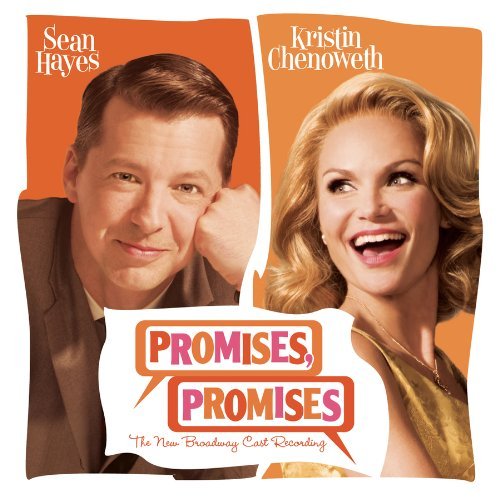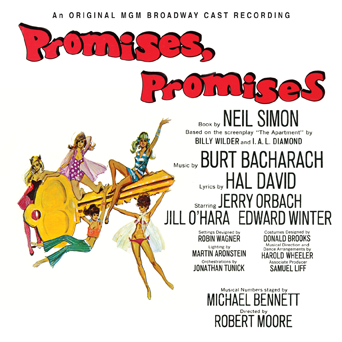Yesterday, I joined the Facebook group “Give the Tonys Back to Broadway.”
It didn’t take me longer than a split second to click “join” when I saw it. I was deeply disappointed in the quality of the Tony Award telecast on Sunday evening. The opening number, which was a medley dedicated to second hand show music (pop music gone Broadway) was indicative of the weakness of the season and a depressing way to spend the first ten minutes of the show. In fact, were I not at the best party in town I may have turned off the show. When I joined yesterday, I was 776th member. By the time of this writing some 30 hours later, the count is up to 5,000. Hunter Foster, current star of Million Dollar Quartet, is the one who spearheaded this social media movement and has listed the following as the info for the group:
A group for all actors, directors, writers and fans who want to see the Tony awards celebrate the excellence of Broadway by allowing those artists who have made theatre their livelihood to take a more active part in its yearly presentation.
We want the evening to be about Broadway and for the fans of Broadway. This group is about including more of those artists that we admire and look up to, so that it truly becomes an evening to celebrate.
I didn’t join the group in attempt to stop Hollywood actors from returning to the boards or making their stage debuts. I am a little wary of the “come to Broadway for four months and get a Tony trend” but that’s not the crux of this biscuit. So long as the performance is good, it doesn’t matter who is giving it. That’s neither here or there for me. But that seems to be misconstrued as the point of this group.
The reason I joined this group is in relation to the telecast itself, not in reflection to the season or who was featured on Broadway throughout the year. I first started watching the Tonys in 2001; prior to that I was mostly unfamiliar with the telecast but well aware of the award itself. I’ve had issues since my telecast about the direction and pacing of the evening, the distribution of awards (how they are given, not necessarily to whom, though I’m deeply disappointed that Tony voters have yet to give the prize to Jan Maxwell) and overall scope of the awards from beginning to end. Each successive year these issues become more and more pronounced.
In the “olden days” when I started watching, the first hour of the telecast took place on PBS (which also hosted the Drama Desk Awards for a spell), then would switch to CBS for the main portion. As years went by, the telecast of that first hour disappeared, relegating those contending in less glamorous but still important categories to NY1 and a webcast that has yet to be perfected. Costume, set and lighting designers as well as orchestrators and librettists, and in some cases composers and lyricists were now part of this “pre-ceremony” (there’s no getting around the fact that most people tune in to CBS only). Also, depending on the year, those receiving special Tony Awards are also sometimes placed in the earlier slot this year. The greatest example this year is Marian Seldes, who received a Lifetime Achievement Award and gave the most brilliant and memorable acceptance speech of the night.
As for celebrities on Broadway, like I said I have no qualms with that. Let them give Broadway a shot, or let those who’ve found Hollywood success come back home. It’s happened since the dawn of the Tony Awards and there are many great stars who have been nominated for or won Tony Awards since the very first year (Best Actor in a Play Henry Fonda anyone?) It sells tickets, keeps many folks employed and makes most producers salivate with anticipation.
However, the issue I have, and why I think the group was formed, is that when Broadway comes to its year-end celebration of a year’s worth of work – the Tony Awards, those who are actually doing the work seem to get shuffled aside for big names who perform or present. Ratings are the only thing that is really important in television and with a show like the Tony Awards, perennially a ratings loser, seems to be getting more and desperate to draw in audiences, particularly the 18-49 demographic. But it doesn’t sit well with me when Green Day is given five minutes, two songs and the chance to turn Radio City Music Hall into the Grammy Awards while Christiane Noll is relegated to singing half of her big song from Ragtime, for which she is nominated. Kate Baldwin, the effervescent star of Finian’s Rainbow, didn’t even get a moment to shine (even though she was far more movie star gorgeous than half of the Hollywood contingent). I know of a couple of Tony award winning actors who asked to present the following year, but were denied by CBS because they weren’t big enough stars.
That brings about another issue I have with the Tony Awards telecast: the venue. I practically cheered to learn that the Tonys will be unable to be broadcast from Radio City Music Hall next year. Until 1967, the awards were merely a formal dinner ceremony at one of the upscale hotel ballrooms in Manhattan (generally the Waldorf-Astoria) with a local telecast in the NY metropolitan area. It was in 1967 that Alexander Cohen and Hildy Parks nationally televised the awards for the first time on ABC (CBS picked up the Tonys in 1978 and have held onto them ever since), transplanting the ceremony into the Shubert Theatre and showcasing performances from the nominated shows, turning the awards ceremony into a night to celebrate the Broadway season. For the next thirty years, the Tonys were televised in this manner: a Broadway house, performances from nominated shows, performances from theatre legends recreating their signature songs and the presence of immense talent.
In 1997, the Awards moved into Radio City Music Hall, the 6,000 seat landmark entertainment venue on the Avenue of the Americas, adjacent to Rockefeller Center. Watching the performances over the years, I’ve never been quite satisfied with the results. The cavernous auditorium is more than three times the size of the largest Broadway house and the numbers tend to get lost in the space. I was in the front orchestra a few weeks ago for Conan O’Brien’s show and it felt like I was in the back of a Broadway house, relying on the television screens. Put the show back on Broadway – perhaps the Gershwin again (the largest Broadway venue) or as SarahB suggested, the vast but intimate Metropolitan Opera House at Lincoln Center. (I, for one, will now and forever nominate the Mark Hellinger for the venue out of respect to the lost venue).
There have always been stars on the Tony Awards, but there used to be more of a presence of stage stars and pieces from the nominated shows and stars: scenes from nominated plays, musical selections from the nominated musicals. In 1970, Katharine Hepburn and co. performed a 15 minute segment from Coco. In 1982, the cast of Dreamgirls performed the entire first act finale, lasting 8 minutes. In between there was still chance for novelty performances medleys, tributes – oh, and awards. As the years have gone on, performance times for shows has become more and more limited, a result of increased commercial time and reliance on pop stars to perform. Many shows are required to present abridged songs or medleys that mostly fail to register on TV. Two of the greatest performances I’ve seen since I’ve started watching were Bernadette Peters and Patti LuPone performing numbers from their respective productions of Gypsy. There hasn’t been enough of that caliber on the awards in the last 10 years.
Ultimately, it’s all about the ratings. It’s not that the members of the American Theatre Wing or Broadway League are dismissing the actors on Broadway – that isn’t the case at all. One only has to look at all the work the two organizations do year round for evidence. It’s that the awards telecast isn’t translating well. There are consistent sound issues, unfortunate camera choices and an absence of Broadway. Give me American Idiot, just don’t give me a Green Day concert. By pandering to those who aren’t watching, it’s the loyal viewers whose viewing experience is effectively diminished.
One last point, I don’t think this group was formed as a reaction to stars winning the Tony Award. There was a higher number this year than usual, but it’s not based in sour grapes to their winning. At least not to me. The reality of the matter in terms of wins remains the subjective result of voting. Keep the stars coming in, just don’t forget those who are already here.


